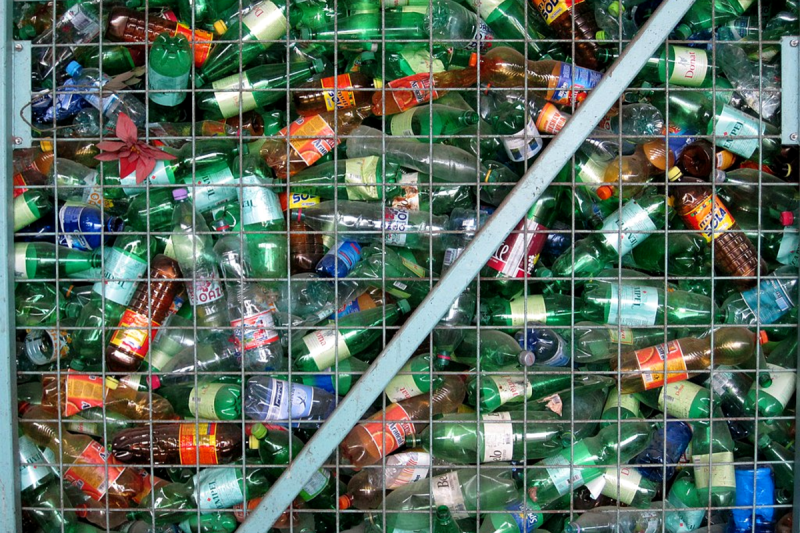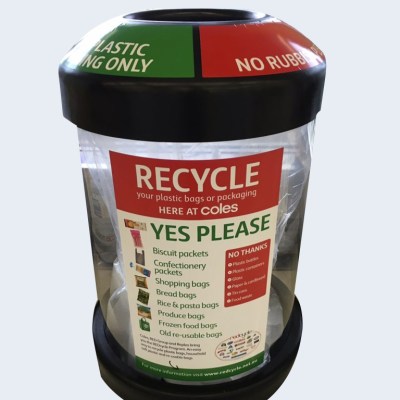

Australia’s Soft Plastic Recycling Debacle
source link: https://hackaday.com/2022/12/15/australias-soft-plastic-recycling-debacle/
Go to the source link to view the article. You can view the picture content, updated content and better typesetting reading experience. If the link is broken, please click the button below to view the snapshot at that time.

Australia’s Soft Plastic Recycling Debacle

We’ve all been told to cut back on waste to help prevent environmental crisis on Earth. Reducing waste helps reduce the need to spend time and energy digging up fresh materials, and helps reduce the amount of trash we have to go out and bury in the ground in landfills. Recycling is a big part of this drive, allowing us to divert waste by reprocessing it into fresh new materials.
Sadly, though, recycling isn’t always as magical as it seems. As Australia has just found out, it’s harder than it sounds, and often smoke and mirrors prevent the public from understanding what’s really going on. Here’s how soft plastic recycling went wrong Down Under.
Yeah, Those Are Totally Recyclable!

REDcycle was established to recycle soft plastics, with the vast majority collected from deposit bins at supermarkets. Credit: REDcycle
In Australia, an operation called REDcycle had long operated a network set up for the recycling of soft plastics. These are defined as plastic packaging items that one can readily crumple up in the hand – things like bread bags, cereal box liners, postal satchels, and even woven polypropylene carry bags. REDcycle placed collection bins at supermarkets around the country to allow people to drop off soft plastics collected in their household. After collection, the soft plastics were processed by REDcycle and handed off to partner organizations. These companies remanufactured the plastics into items like furniture, bollards, and signage. Others used the recycled plastic as a feedstock to produce asphalt additives for road construction.
The operation appeared to be successfully running for quite some time, since being established in 2011. REDcycle’s own website speaks of recycling thousands of tonnes of waste plastic that would traditionally have ended up in landfill. However, the story wasn’t to remain so rosy. The program saw a 350% rise in collection volumes since 2019, with over five million pieces of soft plastic deposited in REDcycle bins each day. This put additional pressure on the program to find a way to deal with the influx of material. It was too successful.
The situation came to a head in November this year, when REDcycle had to “temporarily pause” collection of soft plastics entirely. REDcycle put the issue down to “unforeseen challenges,” in part related to the pandemic. The organisation’s reprocessing partners had stopped accepting plastics. In one case this was due to a facility destroyed by fire, in another due to reduced demand for recycled plastic products. REDcycle has stated its intention to resume collection of soft plastics as soon as possible.
Further investigations revealed the problem had far deeper roots. Investigations revealed the company was sitting on 3,000 tons of soft plastics that were being stored across a network of at least six warehouses. Not only were the materials not being recycled, but they presented a fire risk while in storage. Notably, the local Environment Protection Authority reported to journalists that it had to engage in its own investigations to find all the warehouses being used. According to the government agency, REDcycle only notified the EPA of some of the locations. Contractors for REDcycle indicated to journalists that the stockpiling of material had been ongoing since 2018. Figures suggest REDcycle was bringing in on the order of 7,000 tonnes of soft plastics a year. However, the company’s reprocessing partners were only able to process approximately 3,200 tonnes a year, with the shortfall apparently stuffed into warehouses across the country.
The company had promised that the plastics were being recycled and put to good use, and when the business case simply didn’t stack up, it quietly diverted the waste stream rather than facing up to the problem. The news that the company had simply been warehousing the plastic led to widespread anger from the broader public. Those who had gone to great effort to collect and deposit their soft plastics had learned that it was all for nothing.
All Supply, No Demand
The fact remains that soft plastics are a challenge to recycle. Kerbside trash collectors often ban them from recycling bins, because they clog up conveyer belts used to sort materials. REDcycle solved the collection side of the equation, but the real problem was then reprocessing the material. Food often contaminates the materials, making reprocessing harder and reducing the materials value. Plus, in Australia, at least, there simply hasn’t been enough industrial demand for the waste plastic to keep up with what’s being collected.
Recycling has had long-standing problems in Australia. For the punter on the street, the idea is that the right trash put in the right bin will eventually be turned into something fresh and new. While Australia does a great job at collecting recycling, the reality is that there’s seldom little to do with the material once it’s been picked up. The broader recycling industry faced huge issues in 2017, when China decided it no longer wanted to accept contaminated plastic waste from Australia. That left recycling programs struggling to find outlets for what they were collecting. Until then, the attitude had been to box it up and ship it overseas where it was someone else’s problem.
The hope is that new advanced techniques will enable soft plastics to be more readily recycled. These techniques aim to take waste plastic and turn it back into its chemical precursors that are more useful to industry. Through chemical, thermal, and other processes, it may be possible to economically convert old food wrappers, face masks, and other materials into pure chemicals ready to be used to make new products, or to simply convert waste into usable industrial fuels. However, many of these plastic purification and depolymerization techniques are still at the research stage, or in testing in pilot plants. They may become more viable commercial-scale methods in future.
For now, Australia finds itself trying to pick up the pieces of what it thought was a viable recycling scheme. Outside of a few small pilot programs, people are being told to simply throw their soft plastics in the garbage, as no viable recycling pipeline exists. The collapse of the REDcycle program has done harm to the face of recycling in the country. It will cause many to question why they should bother to recycle when previous efforts have proven false or futile. For the good of the environment, though, the hope is that future developments will one day recycle this huge waste stream, rather then simply burying it from view.
Featured Image: “Plastic bottles for recycling” by Radulf del Maresme
Recommend
About Joyk
Aggregate valuable and interesting links.
Joyk means Joy of geeK